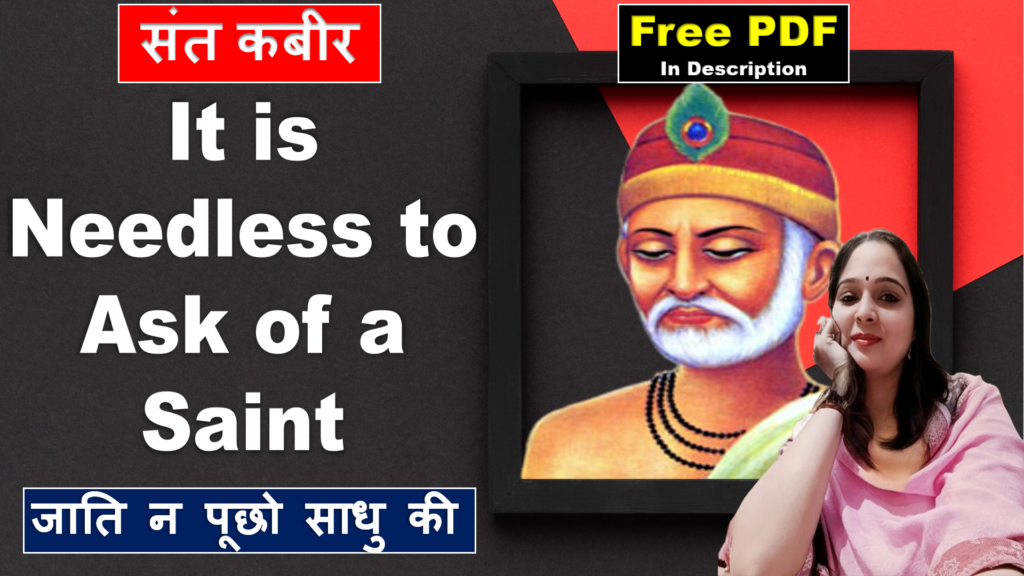
It is needless to ask of a saint by Kabir | It is needless to ask of a saint | Kabir | Explanation | Summary | Key Points | Word Meaning | Critical Appreciation | Questions Answers | Free PDF Download – Easy Literary Lessons
It is Needless to Ask of a Saint
It is needless to ask of a saint the caste to which he belongs;
For the priest, the warrior. the tradesman, and all the
thirty-six castes, alike are seeking for God.
It is but folly to ask what the caste of a saint may be;
The barber has sought God, the washerwoman, and the carpenter-
Even Raidas was a seeker after God.
The Rishi Swapacha was a tanner by caste.
Hindus and Moslems alike have achieved that End, where remains no mark of distinction.
It is needless to ask of a saint Analysis
Line 1: It is needless to ask of a saint the caste to which he belongs;
Explanation: Kabir is saying that caste is irrelevant when it comes to spirituality. All people are equal in the eyes of God, regardless of their caste.
Line 2: For the priest, the warrior, the tradesman, and all the
Line 3: thirty-six castes, alike are seeking for God.
Explanation: Kabir is emphasizing that spirituality is not limited to any particular caste. People of all castes can achieve spiritual liberation.
Line 4: It is but folly to ask what the caste of a saint may be;
Explanation: Kabir is repeating his point from the first line. He is saying that caste is irrelevant in the spiritual realm.
Line 5: The barber has sought God, the washerwoman, and the carpenter-
Explanation: Kabir is giving more examples of people from different castes who have achieved spiritual liberation.
Line 6: Even Raidas was a seeker after God.
Explanation: Raidas was a famous saint from the 15th century. He was born into a low-caste family, but he achieved spiritual liberation through his devotion to God.
Line 7: The Rishi Swapacha was a tanner by caste.
Explanation: Swapacha was another famous saint from the 15th century. He was born into a low-caste family, but he achieved spiritual liberation through his devotion to God.
Line 8: Hindus and Moslems alike have achieved that End, where remains no mark of distinction.
Explanation: Kabir is saying that spiritual liberation is open to all people, regardless of their religion or caste.
Overall message
Kabir’s poem is a powerful critique of the caste system and its harmful effects on society. It is also a reminder that we are all human beings, regardless of our caste, religion, or any other social label.





